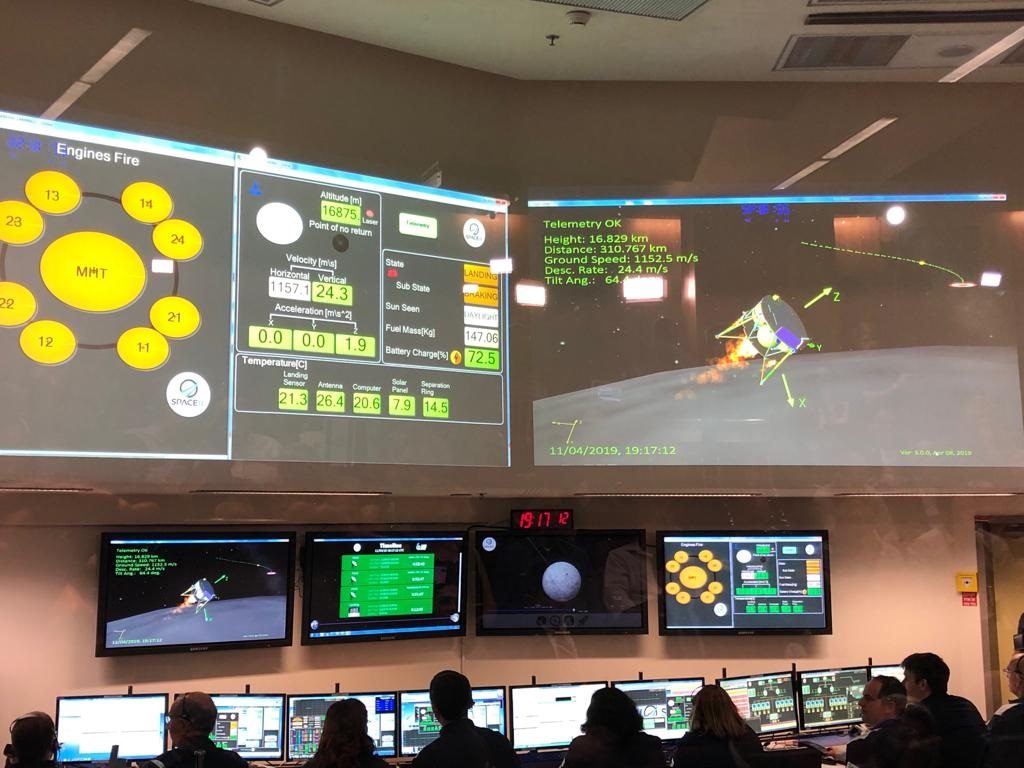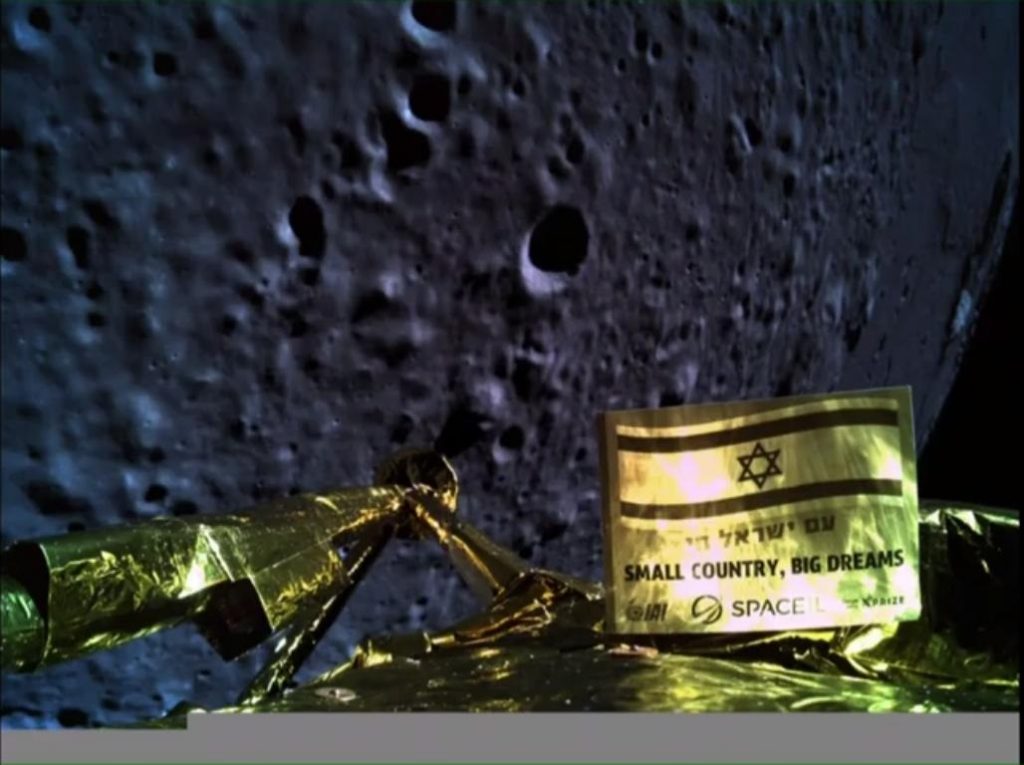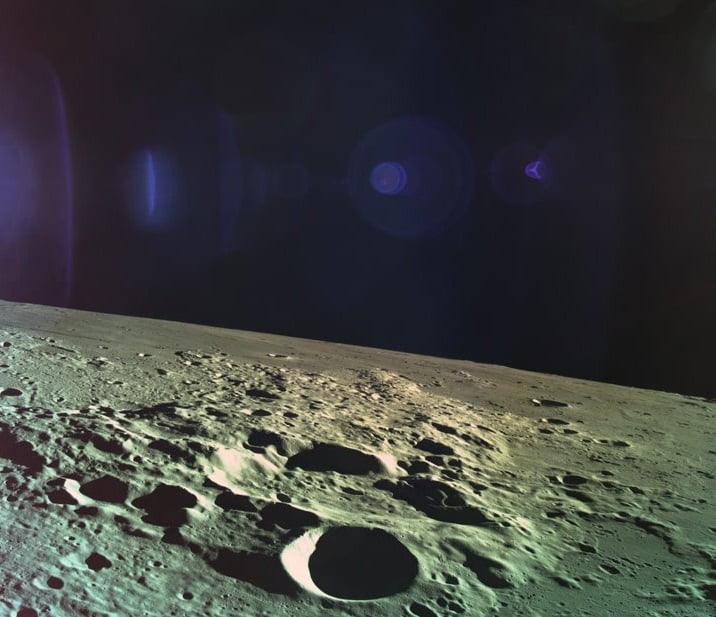In a true testament to Israeli resilience, SpaceIL announced late Saturday – some 48 hours after the crash-landing of its lunar lander Beresheet – that it would be building a new spacecraft dubbed Beresheet 2 and launching a fresh mission to the moon.
And the work begins immediately.
SpaceIL President Morris Kahn, an Israeli-South African philanthropist and the non-profit organization’s main backer, released a video late Saturday night welcoming the outpouring of support for the world’s first privately-funded moon expedition, and its unfortunate failed attempt to perform a controlled landing on the lunar surface on Thursday.
SEE ALSO: So Close: NASA Thanks Israel For ‘Inspiring’ Moon Mission As Beresheet Crashes Upon Landing
“In light of all the support I got from all over the world, and the wonderful messages of support and encouragement and excitement, I decided that we are going to establish Beresheet 2,” Kahn said in the 48-second clip.
“We are actually going to build a new spacecraft, we’re going to put it on the moon and we are going to complete the mission,” Kahn said.
Kahn will be forming a new group of donors to support the construction of Beresheet 2 and its moon journey. The process is expected to take between 2-3 years.
“This is part of my message to the younger generation: Even if you do not succeed, you get up again and try,” Kahn said in a SpaceIL press statement.
On Thursday night, many across the world watched with excitement as Beresheet – the Hebrew word for “Genesis” – attempted to complete the final leg of the journey and make a soft landing on the moon. But at 150 meters (492 feet) from the surface, all connection between SpaceIL and Israel Aerospace Industries command center in the central Israeli city of Yehud and the spacecraft was lost completely as it moved vertically at 500 km/h (310.7 miles) and inevitably crashed.
Premilitary data by the engineering teams of SpaceIL and IAI suggested that a technical glitch triggered a chain of events that caused the main engine of the spacecraft to malfunction, making it impossible to stop Beresheet’s velocity. Beresheet overcame the issue by restarting the engine, but it was too late and the spacecraft crashed.

The SpaceIL and IAI control room in Yehud, Israel on the night of the moon landing attempt, April 11, 2019. Photo via SpaceIL and IAI
It was a bittersweet ending to Israel’s bid to become the fourth country to land a spacecraft on the moon, following superpowers Russia, China, and the United States.
But the words of encouragement, awe, and inspiration began pouring in right away. As did the silver lining outlooks.
First, Beresheet was the world’s first privately funded moon mission, and at $100 million, it was considered a shoestring budget for a space project, marking a milestone for further lunar exploration.
Second, supporters said, the spacecraft did make it to the moon, even if not intact or as planned. One of its key missions, upon landing in an area known as Mare Serenitatis (or Sea of Serenity), was to take measurements of the moon’s magnetic field with an onboard magnetometer, in a joint scientific experiment together with the Weizmann Institute of Science. That won’t happen but the spacecraft is still up there somewhere with the Israeli flag and a digital time capsule loaded with Hebrew songs, stories, Israel’s Declaration of Independence and national anthem, among other national symbols.
Third, though Israel didn’t become the fourth country to complete a controlled landing, it did become the seventh nation in the world to orbit the moon, and it got oh-so-close to the surface.
Fourth, at 22 km from the moon’s surface during the landing process, Beresheet snapped the first-ever selfie with the moon, showing the Israeli flag on board and the plaque with the inscription, “Am Israel Hai” or “The Jewish People Lives” and in English, “Small country, Big dreams.”
Sign up for our free weekly newsletter
Subscribe
The final selfie taken by Israel’s Beresheet spacecraft before it crash-landed on the moon. Photo via SpaceIL and IAI
Fifth, SpaceIL will be awarded a $1 million prize for its achievements. The X Prize, which previously partnered with Google for the now-defunct Google Lunar X Prize competition, announced late Thursday that SpaceIL will be the recipient of the “first-ever $1M Moonshot Award, in honor of their achievements and their milestone as the first privately-funded entity to orbit the moon.”
SpaceIL was founded in 2011 as a dream by three young engineers – Yariv Bash, Kfir Damari and Yonatan Winetraub – to take part in the Google Lunar X Prize competition, an international contest that challenged the world’s engineers to create and send the first private lander to the moon.
And though the contest deadline passed last year on March 31, 2018 and the $20 million prize went unclaimed, SpaceIL decided to push forth with the project with the aim of “showing the next generation that anything is possible – that even our small country can push the limits of imagination.”
And that message has resonated.
NASA, which partnered with SpaceIL on key aspects of the mission, congratulated SpaceIL “on the accomplishment of sending the first privately funded mission into lunar orbit,” tweeted NASA Administrator Jim Bridenstine.
“Space is hard, but worth the risks. If we succeeded every time, there would be no reward. It’s when we keep trying that we inspire others and achieve greatness. Thank you for inspiring us TeamSpaceIL. We’re looking forward to future opportunities to explore the moon together,” Thomas Zurbuchen, associate administrator of the NASA Science Mission Directorate said on Twitter.
“Explorers around the world know that this is not the end of this story, only the end of one amazing chapter of [Israel’s] history! NASA will continue to explore with international and commercial partners!” he said.
Buzz Aldrin, a former astronaut and the second man on the moon as a member of the US Apollo 11 mission to the moon in 1969, sent a heartfelt message to the team.
“Condolences to the Beresheet lander @TeamSpaceIL for what almost was! Communications were lost with the spacecraft just 150 meters (!!!) above the surface, and it couldn’t quite stick the landing. Never lose hope – your hard work, teamwork, and innovation is inspiring to all!” he wrote on Twitter.
Damari wrote on his Facebook page that the team received “thousands of messages, sending us love, support and appreciation.”
SEE ALSO: Inside Israel’s Beresheet Spacecraft – A Great Technological Achievement
“SpaceIL and Beresheet’s journey captured the hearts of millions in Israel and around the world…The landing – reminded us another important message: that it is complicated, not easy. This moment got kids, educators and parents to talk about the meaning of success, not being afraid of failures, persistence, and determination. It left a place for the future scientists and engineers, eager to succeed next time by their own,” he wrote.
“We just wanted to take a moment to thank you all for all of the support we have been getting. It’s incredibly rewarding and empowering to know that so many people around the world got inspired by our journey,” SpaceIL wrote.
Onwards and upwards.
Related posts

Editors’ & Readers’ Choice: 10 Favorite NoCamels Articles

Forward Facing: What Does The Future Hold For Israeli High-Tech?

Impact Innovation: Israeli Startups That Could Shape Our Future




Facebook comments